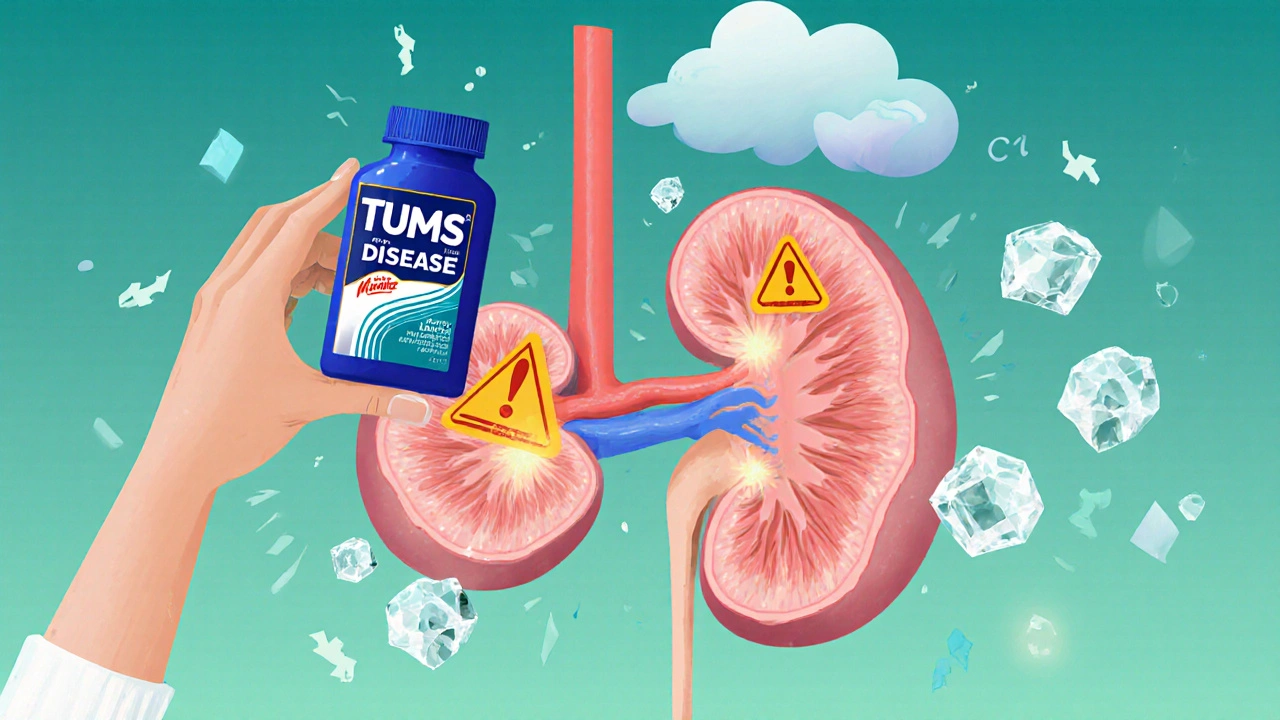Exploring Alternatives to Canada Drugs Direct: Find the Best Deal Online
March 22 2025Antacids: What They Are, How They Work, and What to Know Before You Take Them
When your chest burns after eating, or you feel that sour taste creeping up your throat, you’re likely dealing with antacids, over-the-counter medications that neutralize stomach acid to relieve heartburn and indigestion. Also known as acid neutralizers, they’re one of the most common remedies people reach for—often without knowing how they really work or what they might be hiding.
Antacids don’t cure acid reflux or GERD. They just temporarily calm the fire. They work by counteracting excess stomach acid with bases like calcium carbonate, magnesium hydroxide, or aluminum hydroxide. That’s why you feel relief so fast—sometimes in under five minutes. But here’s the catch: if you’re using them daily, you might be masking a bigger issue. Long-term use can interfere with nutrient absorption, cause diarrhea or constipation, or even lead to rebound acid production. And not all antacids are created equal. Some contain aspirin or other hidden ingredients. Others, like those with aluminum, can build up in your body if you have kidney problems.
People often confuse antacids with H2 blockers or proton pump inhibitors (PPIs), but those work differently. H2 blockers like ranitidine (before it was pulled) and famotidine reduce acid production. PPIs like omeprazole shut it down almost completely. Antacids? They just mop up what’s already there. That’s why they’re great for quick relief after a spicy meal, but not for chronic heartburn. If you’re popping antacids more than twice a week, it’s time to look at your diet, your sleep habits, or whether you’re taking other meds that irritate your stomach.
What you’ll find in the posts below isn’t just a list of antacid brands. It’s a real look at how these medications interact with other drugs you might be taking—like blood thinners or antibiotics. You’ll see how acid reflux can be tied to something as unexpected as depression meds or how some people use antacids to manage side effects from other treatments. There’s no fluff here—just clear, practical info on what works, what doesn’t, and what you should ask your doctor before reaching for the next bottle.
 28 Oct
28 Oct
Antacids and Kidney Disease: What You Need to Know About Phosphate Binders and Risks
Antacids like Tums and Milk of Magnesia are commonly used for heartburn, but for people with kidney disease, they can cause dangerous electrolyte imbalances, aluminum toxicity, and heart damage. Learn the risks and safer alternatives.
Read More...




